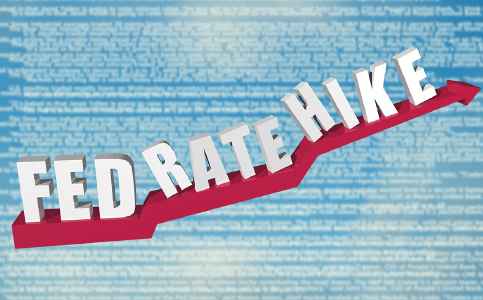
The Federal Reserve is looking to raise interest rates in hopes of tamping down inflation rates that have not been this high since the early 1980s. “We haven’t had inflation like this happen in a while. We thought it’d be transitory but it’s turning out to be more,” said Mark Del Pezzo, CFA and professor of finance at Florida International University. “Seven percent is the biggest increase since the early ’80s.”
As a result, “cheap money will slow down,” said Mr. Del Pezzo. Decreasing easy borrowing is correlated to reducing demand and some of the economic growth, he said. “This a fine line to walk. They’re trying to control inflation to decrease later in the year, to open the supply chain and how that impacts the economy and inflation. It’s a balancing act.”
“If rates are raised, they hope to slow demand down,” he said. “All banks are raising loan rates, so auto and mortgage rates are up. Banks will pretty much raise their rates on loans as the Federal Reserve raises their rates.”
“The dual mandate, full employment and stable inflation, which is about 2%, makes them think inflation will come down with the supply chains opening and the demand cooling off,” said Mr. Del Pezzo. There is additional money from stimulus checks, jobs and raises that are leading to these high demands while the supply isn’t completely open, he said. “Overseas supply chains are frozen. Parts for cars are at a low inventory.”
“The Federal Reserve will raise rates 1% to 1.5% from where they are now, at least,” he said. “That’s not a high rate, but it’s different in what they’ve been doing with easy money so people can borrow and buy homes, real estate, cars, etc.”
“They’ll raise rates a little, but they’ll keep it low,” predicted Andrew Carrillo, president of Barnett Capital Advisors. “They have been talking about it for 15 years and haven’t raised the rates. It’s going to be different because lowering rates is more fun.”
“Right now, they feel like it’s a must,” Mr. Carrillo said. With inflation the highest it’s been in 40 years, the Federal Reserve feels it must do something to put consumers at ease, he said.
The real estate market will be sensitive to interest rates rising because of the effect on mortgages. Interest rates on residential mortgages, now about 3%, are expected to rise.
“If interest rates rise, consumers lose buying power,” said Mike Pappas, CEO and president of The Keyes Company. “These interest rates will rise when the fed starts to slow down and stop buying their bonds,” Mr. Pappas told Miami Today in December.
“They have to sell bonds. The money they injected into the market has to be sold,” said Mr. Carrillo. “The money is good going in but bad going out.”
Another piece to the future interest rate rise equation is buying treasury bonds and slowing that process down over the next six to 12 months and sending the federal funds rates up, Mr. Del Pezzo said.
On Jan. 25 and 26, the Federal Reserve will meet to formally vote on interest rates with the Federal Open Market Committee to talk to the public and prepare markets to expect the rise in rates. “They will take it slow and prepare the market,” said Mr. Del Pezzo. “It will probably be raised a quarter of one percent every couple of months to eventually get it to about 1.25%.”
“If this is transitory, like the government is telling us, we might not see higher interest rates in the long run,” Mr. Pappas said in December. “If it isn’t transitory, there is more money and supply on the market, leading to inflation, and you’ll historically see feds start raising prices to curve inflation.” This is negative for real estate because there is less demand for property.
“Real estate is interest rate sensitive because consumers purchase on mortgage and cash flow that they can afford,” Mr. Carrillo said.
“I have had students tell me that their rent is increasing,” said Mr. Del Pezzo. “Keeping inflation down is bringing attention to the lower and middle class.”
“So the Federal Reserve will get interest rates to banks, raise them slowly but surely and slow down the demand, without the economy slowing too much and going into a recession,” said Mr. Del Pezzo. “But with inflation at 7%, you’re buying a lucky eight ball.”
https://www.miamitodaynews.com/2022/01/18/wary-eyes-on-higher-fed-interest-rate/


